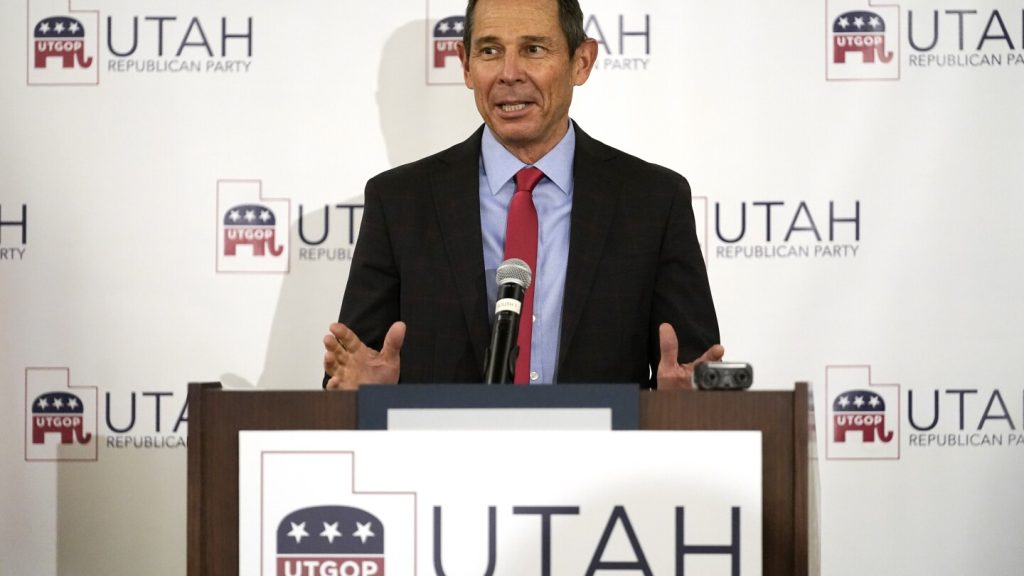The upcoming Utah GOP convention is expected to be a battleground between moderate Republicans and farther-right challengers, with a focus on the race to succeed U.S. Sen. Mitt Romney. Romney, known for his centrist views and opposition to former President Trump, has left a void in the party that candidates are looking to fill. Delegates at the convention will select the party’s nominee, but the winner is not guaranteed success in the June primary or November general election. Among the nearly dozen Republicans vying to replace Romney are a congressman, a former state legislative leader, and the son of Utah’s longest-serving U.S. senator. Some candidates are aligning themselves with Trump and Utah Sen. Mike Lee, while others are distancing themselves to appeal to a broader base of voters.
The race to succeed Romney has become a flashpoint between the moderate and pro-Trump factions of the Republican Party in Utah. The more moderate faction, represented by Romney, has historically resonated with Utah voters, while the pro-Trump faction has struggled to gain widespread support. Candidates like former state House Speaker Brad Wilson, who has endorsed Trump and promises to be a conservative fighter, are likely to appeal to convention delegates who tend to be more conservative. On the other hand, U.S. Rep. John Curtis, seen as the more moderate candidate, has been compared to Romney for his willingness to push back against hardliners in the party, particularly on issues like climate change. Curtis could have broader appeal among primary voters and beyond, according to political scientist James Curry.
Both Wilson and Curtis have already collected enough signatures to qualify for the primary, regardless of the outcome at the convention. While winning the party nomination could boost their campaigns, historically, Republican Party nominations have had little impact on who Utah voters ultimately choose to represent them. The convention will also select nominees for governor, Congress, and other offices, adding to the significance of the event. The winner of the GOP convention will face the challenge of uniting the party and appealing to a broad spectrum of voters in the June primary and November general election.
The crowded field of Republican candidates competing to replace Romney highlights the divisions within the party and the ongoing struggle between moderate and conservative factions. The outcome of the GOP convention will not only determine the party’s nominee but also set the tone for the upcoming primary and general election. With candidates like Wilson and Curtis vying for the spotlight, the future of the Republican Party in Utah hangs in the balance. The convention will be closely watched by political analysts, pundits, and voters alike, as it could shape the direction of the party and influence the outcome of key races in the state. As Utah Republicans gather to make their voices heard, the stage is set for a showdown between competing visions for the party’s future and the state’s political landscape.
The battle for the Utah GOP nomination reflects larger trends within the Republican Party nationally, as moderates and conservatives clash over the direction of the party and its relationship with former President Trump. The outcome of the convention will not only impact the race to succeed Romney but also have broader implications for the party’s identity and appeal to voters. With the stakes high and the candidates eager to secure their spot on the ballot, the convention promises to be a pivotal moment in Utah politics. The legacy of Romney, the influence of Trump, and the future of the party are all at play as delegates gather to make their choice. The eyes of the nation will be on Utah this weekend as Republicans navigate a critical juncture in their party’s history and the state’s political landscape.















